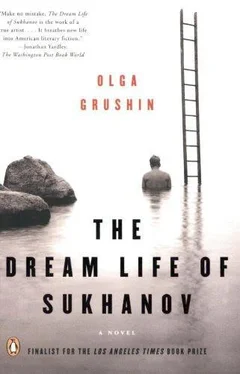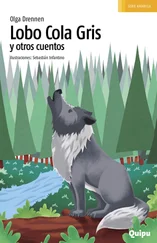“Funny, I never liked being in the country very much,” he said meditatively, emptying the last of the wine into his glass, “yet now I can almost see myself living here.”
Nina stirred as if waking from her own reverie.
“I never asked you,” she said. “How long are you planning to stay?”
“Vadim is picking us up tomorrow afternoon. But I think we should come back soon, don’t you agree, spend a few days, maybe even a week—”
“I don’t think I’ll be ready to leave tomorrow,” said Nina softly, almost to herself.
“More garden work?” he asked with a smile. “I thought you said you’d be done by Tuesday. Well, we could postpone our return by a day or two. I’ll call Vadim.”
“No, what I mean is,” she said, “I want to stay here for a while.”
“How long?”
“Perhaps until the first snows. Maybe longer.”
His thoughts derailed abruptly. “But… that’s at least two months! I know I just said I could live here, but frankly, I doubt I could stand it for that long, and even if I could, my presence in Moscow might be—”
Nina set down her half-finished wine. The glass made a small liquid chink against the floor. “Tolya, you misunderstand me,” she said. “I’m not suggesting that you stay here with me. I want to be by myself. Alone.”
The whistle of a train rose in the distance, piercing and solitary like the cry of a lost bird. She waited for it to die away before speaking again. Everything was moving in excruciatingly slow motion.
“I was hoping we could just have a nice day and talk about all this tomorrow, but, well… You haven’t yet heard from Vasily, I take it?”
“No, is something the matter? Is your father ill? Is Vasily—”
The air, dense with disbelief and rasping with erratic heartbeats, was hard to inhale.
“They are both fine,” she said. “As a matter of fact, they are having such a grand time together that Papa has asked Vasily to move in with him when they return. Vasily called me last night.”
“And what did he… What did you…”
“He likes the idea,” she said expressionlessly. “The location is much more convenient for him. More central. And it would be nice for someone to keep Papa company. He gets lonely, I think, even though he’d never admit it. So, since they both appear to want it, I don’t see why—”
She bent to prod the wood in the fireplace, and he followed a flurry of tiny sparks spiraling through the darkness. Somehow he felt no surprise at the news, only bitterness and a certain vague revulsion—not unlike the unpleasant sensation he had experienced a few days before at his father-in-law’s apartment when he had watched dozens of effusive old men embrace dozens of respectful youths in the gilded mirrors of the hallway. And then, as a clear snapshot of the scene emerged from the dimness of the past, he finally guessed at the source of his distaste. Pyotr Alekseevich and Vasily looked so amazingly alike that it had been rather like seeing an aged man give a young version of himself an infinite pat on the back. How odd, he wondered, that he had never noticed the similarity before—and how ironic that Vasily and Ksenya would both choose the exact same time to desert—
Sensing Nina’s eyes on him, he realized with a start that he must have spoken aloud.
“Don’t worry, Tolya,” she said with a sigh. “I already know about Ksenya. I talked to her yesterday.”
He let her words traverse his being slowly, very slowly, until he felt them coming to rest somewhere amid the chaos of his tossing thoughts. And at that precise moment, the tossing stopped, his pained bewilderment yielded, and anger began to glow hollowly in his heart—fed perhaps by a deeper current of guilt.
“Oh,” he said coldly. “I see. You mean to punish me for the rift with our children, do you? Of course, I’m the only one to blame here. After all, I’m such a dismal failure as a father. Why, I should have been there for them, I should have guided, I should have prevented, I should have known—whereas you, you were always so perceptive, so loving, so—”
“Tolya, I’m not assigning blame to anyone,” she said. “And anyway, Vasily is probably better off with Papa, we both know that. And Ksenya, I think she’ll be all right. She’ll be living at her friend Lina‘s, a wonderful girl. I like Boris a great deal too. Of course, I’ll worry about her, but I feel it’s time to let her do her own thing. She has grown up so much faster than I thought possible. That’s not why I—”
“You’ve met that good-for-nothing boy of hers, and you think she has grown up?” he said with hasty incredulity. “Well, talk of a lapse in parenting skills! Or has our dear daughter neglected to mention that he is married, or that he writes deranged songs about angels and suicides, or that he has a following of mad hippies, or that he is the one who stole all my—”
“I said ‘grown up,’ not ‘grown old,’” she interrupted. “Of course she makes mistakes—she is young, she and Boris both! Young and talented and in love and…”
Her outcry faltered, silenced by some invisible but powerful presence. When she spoke again, her voice was so low he had to strain his hearing to understand, and her words sounded oddly frail, and yet brave, as if balancing on a tightrope stretched across an abyss that only the two of them could see.
“My God, Tolya, don’t you remember what it feels like?” she said in a near-whisper. “To be in a hurry to live, to dream of overthrowing conventions, to hope to make the world a gift of something beautiful and everlasting? Don’t you remember, Tolya? Tolya?”
And for one hushed moment, as they sat facing each other across the night—she searching his face with a disconcerting, hopeful intensity, he struggling to find the only answer worthy of all their years together, of the past they had shared—for one brilliant, self-contained moment, everything seemed in flux, and everything was wonderfully possible, and he knew that if he could only discern the right words in the monstrous whirlwind of his mind, the universe would shift obligingly, the past and the present would merge with miraculous ease, and she would smile once more into his eyes, and their life would once again be surprising and full and precious, and… and…
“Of course, I should have known,” Nina said in a tired voice, turning away. “After all, you have such a way with undesirable memories…. Well, I just pray that as these children sort through things in the years to come, they will be different from us and won’t discard their dreams along with their messes.”
And he felt time resume its progress through the world, and the present imposed itself once more on his senses—the quiet darkness dispersed here and there by the yellow squares of neighbors’ lit windows, the stars dancing with chilly precision above the trees, the smells of plums and ashes in the air, the gentle scratching of aspen branches against the roof; except that now, it all began to seem strangely unreal, like a crudely painted stage decoration for some tragic and mildly ridiculous provincial play. Hopelessly he questioned the night for the expression of Nina’s eyes, but saw only the lines of her profile, pale and merciless like that of a pagan goddess of justice. Then he realized that her lips were moving, that she was speaking again.
“I’m sorry, that was unfair,” she was saying. “We both made our choices back then, and in all honesty, mine was probably much less admirable than yours.”
Her tone was one of defeat, and her words had no meaning. He made an effort to speak.
“Your choice?” he said. “What choice was that? Going along with whatever I decided? Forgive me, but that’s hardly a—”
Читать дальше








![Theresa Cheung - The Dream Dictionary from A to Z [Revised edition] - The Ultimate A–Z to Interpret the Secrets of Your Dreams](/books/692092/theresa-cheung-the-dream-dictionary-from-a-to-z-r-thumb.webp)



